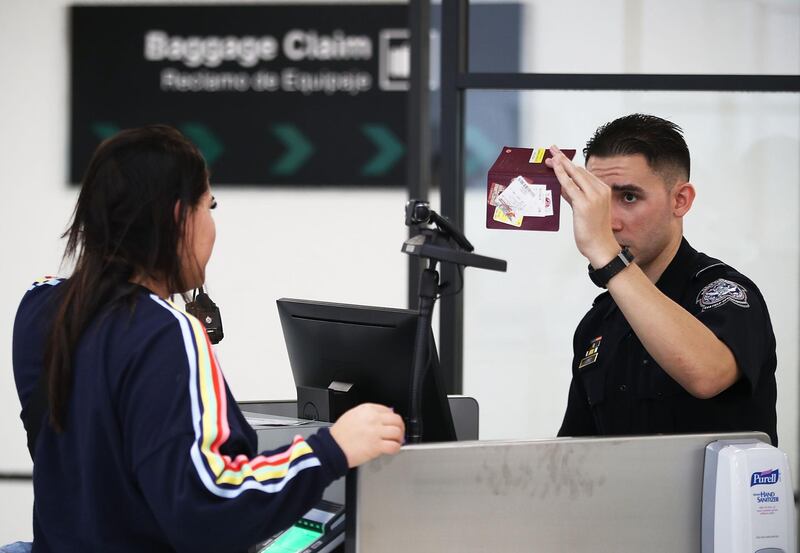Last week, as online commentary raged about the case of Ellie Holman, a Swedish dentist who was detained and deported after apparently abusing and filming an immigration official after presenting invalid travel documents at Dubai International Airport, I reflected on hundreds of encounters I have had with officials at airports all over the world, and how they are best managed.
As my colleague Saeed Saeed rightly wrote last week, behaviour such as Dr Holman's is not tolerated at any airport, as numerous printed warnings at airports such as London's Heathrow make abundantly clear.
Yet while good manners at airports are important, there's more to trouble-free transit than politeness. Most of it comes down to preparation. First, the obvious: passports, visas, tickets and itineraries should all be triple-checked before departure, and important documents printed out. You will be surprised at how frequently your "confirmed" visa, seat, baggage confirmation or even whole booking can disappear from airport systems. A piece of paper usually puts the matter firmly back in their court.
Yet preparation also comes in the form of judgement. Airport staff are all human, with their own approach to their work and the rules. What I have learnt is that while some rules are rightly non-negotiable, others are surprisingly so, if you approach them and the people involved in the right manner. I have been amazed at what can be achieved with a firm-but-friendly approach.
Two examples come to mind. First, flying to Europe one summer, I arrived at the airport having renewed my passport, but forgot that my UAE residence visa was in my expired passport at home. At the immigration counter, I was told that I couldn't travel – and there wasn't time to go home to retrieve the document. Yet when I explained that I was going on a business trip and needed to cover the event, a manager found it so funny that he allowed me to travel as long as I promised to have the correct visa when I came back. A friend brought my expired passport to me in Spain, and all was well.
On another occasion, again in the UAE, I arrived about an hour before departure for a flight to Japan. On reaching check-in, I was told the flight had closed. This is fair enough when you have bags to check in, because airlines have to calculate final weights to know exactly how much fuel to load, and this can't be done last-minute. Yet I asked the check-in clerk to make a few calls, and the flight was magically re-opened.
Once, in Istanbul, an immigration officer questioned why I didn't have six full empty passport pages, a requirement in some countries. Seeing it wasn't a cut-and-dry issue, I blustered through and carried on my way.
I have negotiated lots of tricky situations by simply connecting with people. Anyone who is stuck in a queue for passport control can use that time to observe different officers' moods and styles.
If you're called forward by a blunt, brash United States official obviously keen to get through a line of people, don't empty the contents of your handbag on to the counter and embark on a nervous monologue. Stand to attention as their time is valuable. A quick hello, and "how are you?" back if they ask, then get to the point. Done and stamped. If staff are more standoffish and look ready to interrogate, take your time. Make eye contact, answer questions confidently and fully, as if you have all day. If there's a place I'm nervous about getting into or haven't prepared much for, I will sometimes act as if I couldn't care less whether I'm admitted or not.
By its nature, cross-border travel gathers a cross-section of humanity. Imagine being an airport official and having to look at it all day. Put yourself in their shoes and don't be one of those people. Be different, and the gates of the world will open to you.
__________________
Read more:
Is the coverage of the deported Swedish woman anything more than fake news?
On the move: Why we should all join the e-bike revolution
On the move: cabin fever offers us big life lessons
On the move: In memory of Anthony Bourdain, a phenomenal meal in Vancouver
__________________





